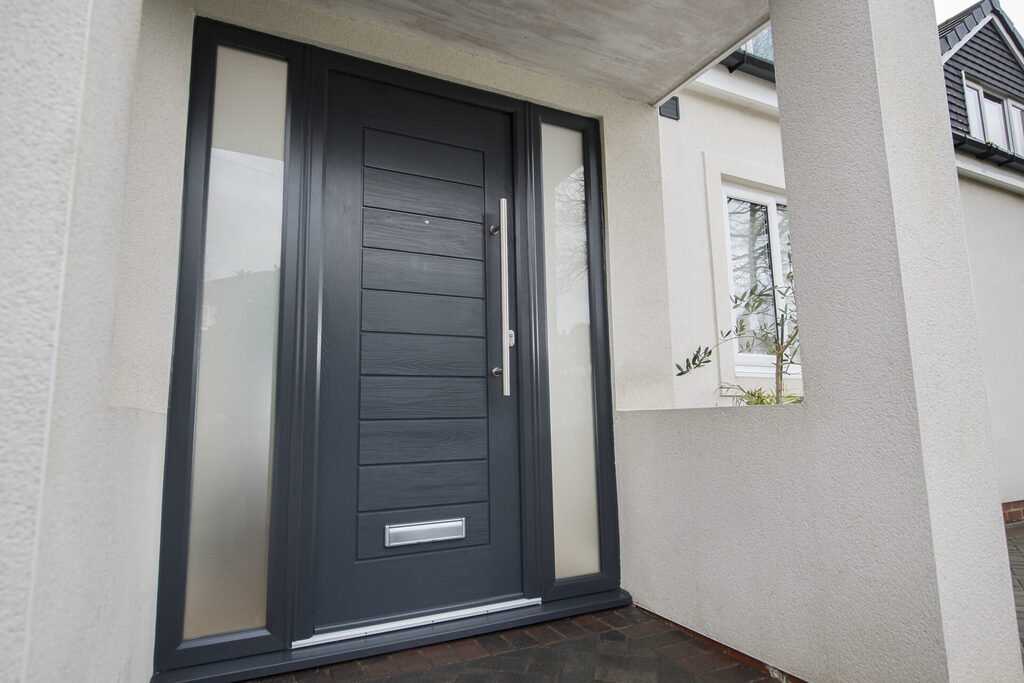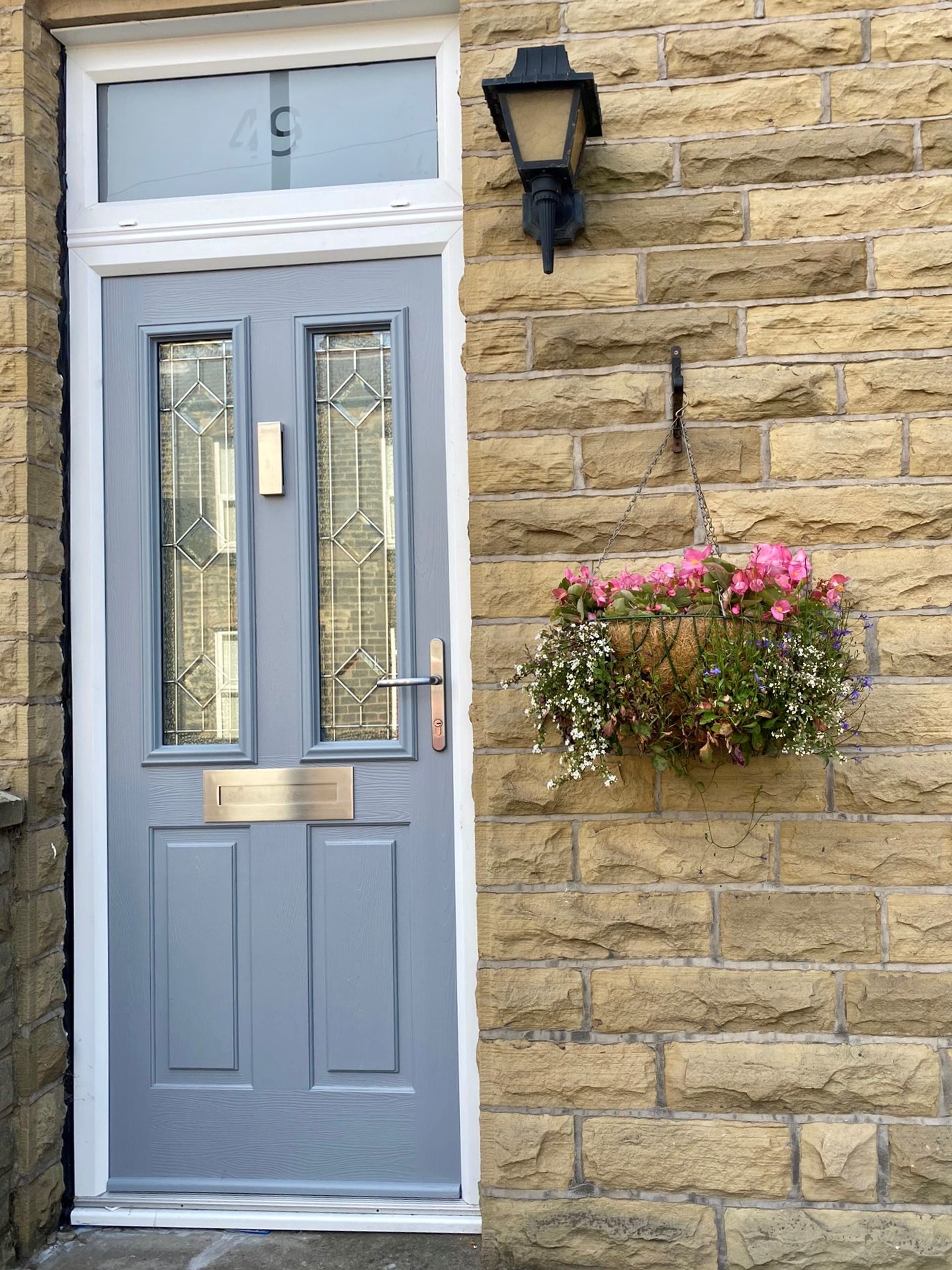Last Updated on 4 September 2024 by
Composite doors are a popular choice for homeowners seeking durability and style. But amidst the buzz, a lingering question remains: do composite doors warp?
Let’s unravel this mystery and equip you with the knowledge to safeguard your investment.
In a hurry and need information fast? Jump to:
- What are the main causes of warping?
- Material composition of composite doors
- Do Composite doors warp in the sun
- Prevention
- Invest in a High-Quality Composite Door
- FAQs
Why do composite doors warp?
Composite doors boast resilience, yet warping can occur due to various factors. Chief among them is moisture infiltration. When water penetrates the door, it swells and contracts, leading to warping. Improper installation and exposure to extreme weather exacerbate this issue further.
What are the main causes of warping?
Several factors can lead to warping in composite doors, such as:
Moisture Menace
Excessive moisture absorption is the arch-nemesis of composite doors, triggering swelling and eventual warping. This moisture can seep in through gaps in the door frame or cracks in the sealant, particularly in areas prone to heavy rainfall or high humidity. It’s important to specify a well manufactured, reputable door brand to ensure moisture ingress is not a concern.
Installation Woes
A poorly fitted door spells trouble, inviting warping woes. Proper sealing and alignment during installation are paramount. If the door is not installed correctly, it may not sit flush within the frame, which can make the door more prone to seasonal movement. This can lead to operational issues and eventually the door leaf warping.
Seasonal Movement
While composite doors brave the elements admirably, prolonged sun exposure can accelerate wear and tear. UV rays chip away at the door’s defences, making it susceptible to warping over time. This is particularly problematic in regions with intense sunlight, where doors are constantly exposed to harsh rays.
We’re now offering instant quoting across our Comp Door range. To quote, head over to our Comp Door designer.
Material composition
Composite doors are engineered using a combination of materials to harness the strengths of each component, resulting in a door that is highly durable, secure, and resistant to warping. Let’s delve into the key elements that make up composite doors, including aluminium composite doors:
1. High-Density Foam Core
Surrounding the fiberglass core is a layer of high-density polyurethane foam. This foam core acts as a thermal barrier, effectively insulating the door and helping to regulate indoor temperatures. By minimising heat transfer, the foam core enhances energy efficiency, reducing heating and cooling costs throughout the year. Some composite doors also feature a solid timber core, providing additional strength and robustness while still offering excellent insulation properties.
2. Composite Skins
On either side of the foam core are composite skins, typically made of a mixture of wood fibres, resins, and polymers. Most composite door skins are made of GRP (glass reinforced plastic). These skins provide the aesthetic appeal of wood without the drawbacks, such as susceptibility to warping, rot, or insect damage. Composite skins are engineered to withstand the elements, maintaining their appearance and structural integrity over time.
3. Aluminium Reinforcements (for Aluminium Composite Doors):
In the case of aluminium composite doors, aluminium reinforcements are integrated into the door’s construction to enhance strength and security. These reinforcements are strategically placed within the door frame and panels to provide additional support and rigidity, ensuring that the door remains robust and warp-resistant.
Do composite doors warp in the sun?
Composite doors, like any other door, can warp in the sun if not manufactured and installed correctly. The key to preventing warping is to look for a high-quality product that is resistant to UV damage and built to withstand harsh environmental conditions.
By choosing a well-manufactured composite door and ensuring proper installation, you can avoid operational issues and enjoy a door that remains straight and functional for years to come.
Looking to upgrade your front door but unsure where to start? Our composite door guide offers valuable assistance to help you make the right choice.
How to prevent a composite door warping
Here are a few ways you can protect your investment with proactive measures:
Pull handle up when shutting the door
Minimise strain on the door by ensuring it shuts gently. Avoid slamming the door shut, as this can cause unnecessary stress on the hinges and frame, potentially leading to warping over time.
Ensure a correctly fitted door
Opt for professional installation to guarantee a snug fit and proper sealing. A well-installed door will not only enhance the aesthetic appeal of your home but also minimise the risk of warping due to moisture infiltration or structural misalignment.
Feel free to check out our nationwide fitting service.
Place the door out of the sun
Shield your door from direct sunlight whenever possible to prolong its lifespan. Consider installing awnings or shades to provide additional protection against UV rays, especially if your door is exposed to prolonged sunlight throughout the day.
Choose an auto firing lock
All of our Comp Doors feature auto fire locking mechanisms, which not only ensure that the door is securely locked even if someone forgets to lock it manually, but also keeps the door slab straight at all times.
All doors in our Comp Door range also come with a 3-star cylinder as standard, for extra security.
Invest in a High-Quality Composite Door from GFD Homes today
After exploring the factors that contribute to door warping and discovering the resilience of composite doors, it’s clear that choosing the right door for your home is crucial. By investing in a high-quality composite door from GFD Homes, you can enjoy peace of mind knowing that your door is built to withstand the test of time.
With our commitment to craftsmanship, attention to detail, and dedication to customer satisfaction, we’re proud to offer a range of composite doors that combine style, security, and durability. Whether you’re seeking classic elegance or contemporary charm, our selection has something to complement every home.

Our GFD Homes entrance doors range features top-quality options like Solidor composite doors.
Don’t settle for anything less than the best when it comes to protecting your home and enhancing its kerb appeal.
Invest in a high-quality composite door from GFD Homes today and experience the difference for yourself.
If you have questions and need some help, feel free to contact our team on 01642 309576- they’ll be happy to help. Alternatively, if you’d much prefer to see our door range in person, we’d recommend booking a visit to our North East showroom.
FAQs about composite doors warping
Are there problems with composite doors?
Composite doors are generally robust, but vigilant maintenance is key to preventing issues like warping. Regular inspections and timely repairs can help identify and address potential problems before they escalate.
Do composite doors swell in winter?
Yes, fluctuations in temperature and moisture levels can cause composite doors to swell during winter months. Proper insulation and weather-stripping can help minimise the impact of seasonal changes and prevent warping.
Why is my composite door draughty?
Draughts can occur due to improper installation or wear over time. Addressing these issues promptly can restore your door’s efficiency and prevent further damage.
How long do composite doors last?
With proper care and maintenance, composite doors can last for decades. Their durable construction and resistance to warping, rot, and insect damage make them a long-lasting investment in your home’s security and curb appeal.
Are composite doors suitable for all climates?
Yes, composite doors are designed to withstand a wide range of weather conditions, making them suitable for use in various climates. Whether you live in a rainy coastal region, a hot and sunny South-facing area, or a cold and snowy climate, composite doors offer durability and performance year-round.

